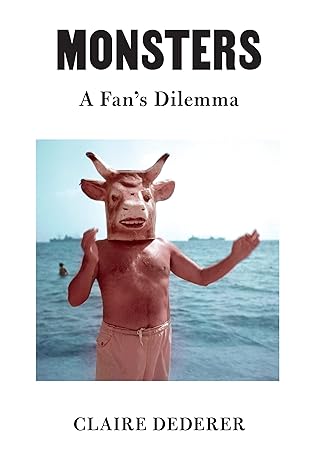More on this book
Community
Kindle Notes & Highlights
I wished someone would invent an online calculator—the user would enter the name of an artist, whereupon the calculator would assess the heinousness of the crime versus the greatness of the art and spit out a verdict: you could or could not consume the work of this artist.
A rock had been turned over and revealed a bunch of sex pests, scuttling around in the newly bright light.
What exactly are these guys defending? Is it the film? Or something else?
A woman says what happened to her, an abuse is revealed, and the stain travels backward, affecting and defining the perpetrator not just at the time of the abuse, and not just after the abuse, but before he committed the crime. Our knowledge of the crime affects the person he was all along. The knowledge is a time traveler—because our idea of that person is affected by our new knowledge.
This is how the memoirist and essayist Vivian Gornick describes her own relentless critical faculty: “My voice, forever edged in judgment, that also never stops registering the flaw, the absence, the incompleteness.” This is the voice I would grow up to possess. But it’s not exactly the voice of authority. Just a never-ending flow of judgment, which nestles together with subjectivity.
Critical thought must bow its knee to love of the work—if something moves us, whoever we are, we must give that something at least some small degree of fealty.
For teenagers, music makes a kind of repository for feelings, a place for feelings to live, a carrier. So a betrayal by a musician becomes all the more painful—it’s like being betrayed by your own inner self.
I lie awake worrying about it, and meanwhile old Pablo was putting out cigarettes on his girlfriend’s face.
We reward and reward this bad behavior until it becomes synonymous with greatness. Not just because the gatekeepers and publishers and studio heads have traditionally been men, but also because we ourselves yearn for plot and action. We yearn for events! And then we are furious when this eventful asshole commits a crime.
The freedom I dreamed of was white freedom. Of course I didn’t see it that way. But the racism was part of the project; the project of making more freedom for white people. It’s not accidental that it was there; it was part of the deal.
“We would always ask about gentiles: ‘Would they have hidden us? Would they hide us now?’ ”
We imagine we would’ve been that person, the one who would’ve written the letter, who would’ve spoken out, would’ve hidden the Jews, would’ve provided the stop on the Underground Railroad. We say this to ourselves as the world literally burns, as militarized police forces murder citizens, as children are held in camps at our own borders.
I regret things I’ve said, things I’ve written, things I’ve done. They’re out there and I know I was wrong. I have a sense of fear that I might be shamed for my mistakes. Is this shame-in-waiting the price we pay for the reckoning of #MeToo? Is it some kind of Greek myth–like trade-off where we don’t get one without the other? If so, is it worth my potential loss of status for victims to be able to say what happened to them?
The great writer knows that even the blackest thoughts are ordinary.
The violence of male artists has a story. The story is this: He is subject to forces greater than himself, forces that are beyond his control. Sometimes these forces get out of hand, and he slips up and commits a crime. That’s unfortunate, but we understand that these forces are the same forces that make his art great.
The fact is that our consumption, or lack thereof, of the work is essentially meaningless as an ethical gesture.


